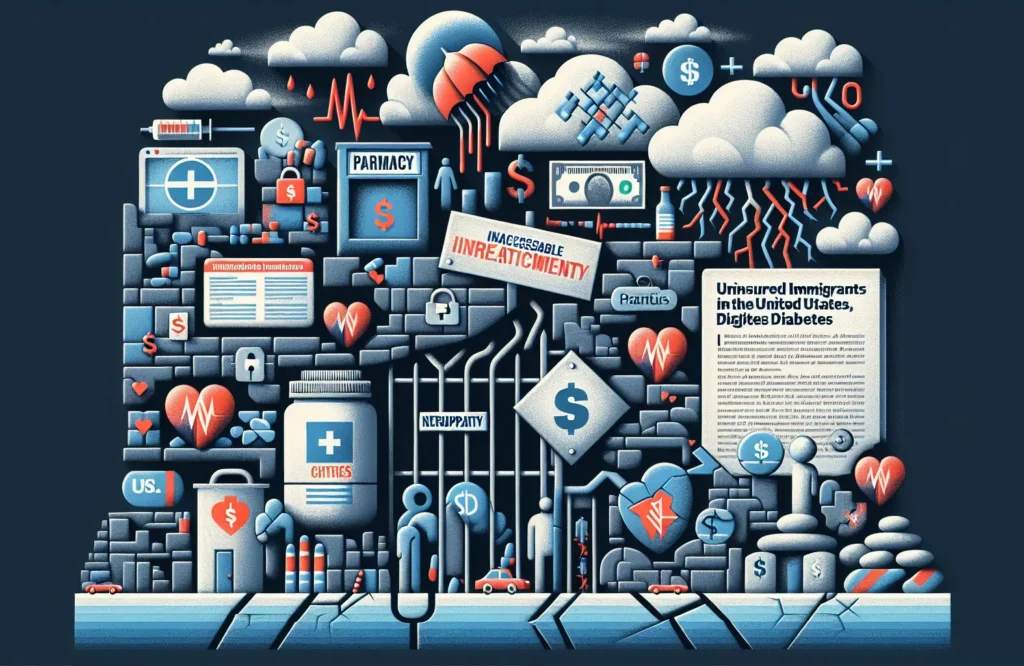
By CAFMI AI From Journal of General Internal Medicine
Diabetes remains a significant and growing health concern among immigrant populations in the United States. These groups often face unique challenges that exacerbate the difficulties in managing chronic diseases such as diabetes. A major obstacle is the high cost of newer, more effective antidiabetic medications, which are often out of reach for uninsured immigrants. This population typically experiences limited healthcare access due to factors including lack of insurance coverage, language barriers, and socioeconomic constraints. These challenges directly impact medication adherence and lead to poorer health outcomes, increasing the risk of complications such as cardiovascular disease, neuropathy, and renal impairment. Providers must understand that uninsured immigrants are disproportionately affected by these factors, which necessitates targeted interventions to improve diabetes care and ensure equitable health outcomes.
To address the high cost and limited access to diabetes medications among uninsured immigrants, various strategies can be employed. These include expanding programs that provide low-cost or free medications, increasing awareness of patient assistance programs offered by pharmaceutical companies, and supporting community health centers that serve underserved populations. Additionally, policy changes aimed at lowering drug prices and expanding healthcare coverage are crucial. Healthcare providers can also play a key role by prescribing affordable medication alternatives and providing culturally competent care to overcome communication barriers. These combined efforts can help improve medication adherence and overall diabetes management in this vulnerable group.
Community-based support and education programs are vital components in managing diabetes among uninsured immigrant populations. These programs can provide culturally relevant education about diabetes prevention, treatment options, and lifestyle modifications. Peer support groups and community health workers who share the same language and cultural background can help build trust and encourage adherence to treatment plans. Education initiatives that focus on nutrition, physical activity, and the importance of medication can empower individuals to take control of their health. Strengthening community resources and partnerships is essential to reduce health disparities and improve long-term diabetes outcomes for uninsured immigrants.
Read The Original Publication Here